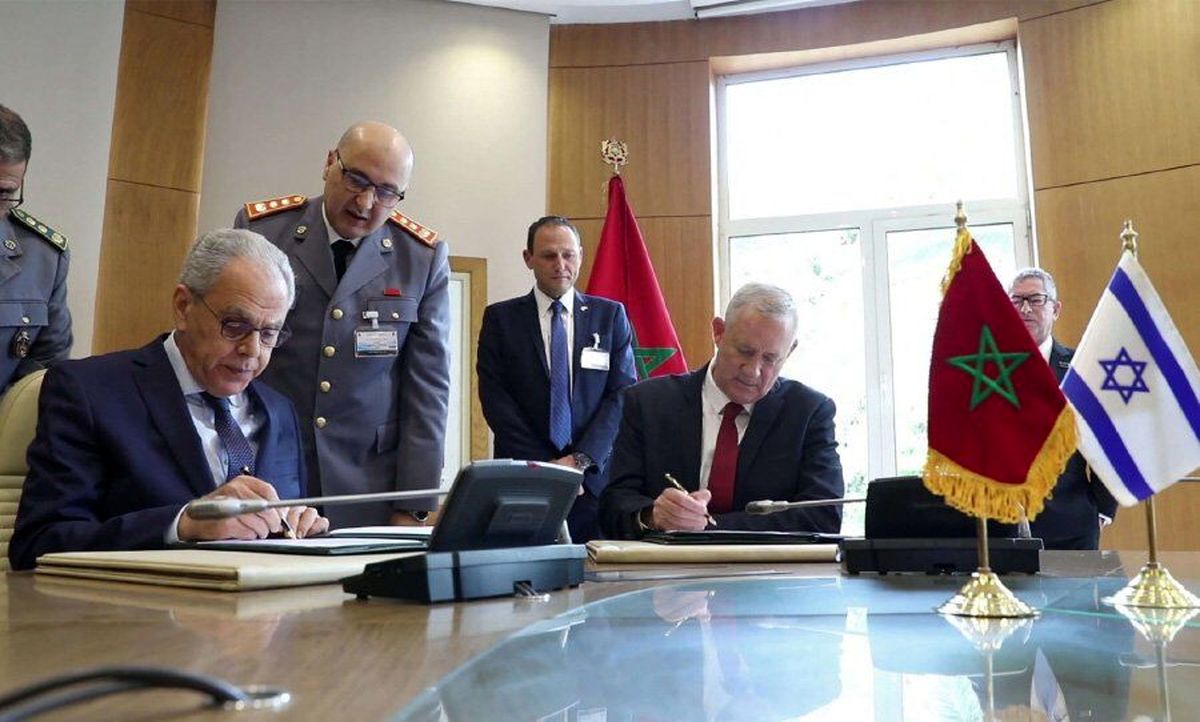Morocco has been suffering from economic, political and social problems for years and is trying to get out of those crises by approaching the Israeli and American regimes.
Since the year 2000, Morocco has established political relations with the Zionist regime without any political or security justification, and subsequently opened the Israeli regime’s embassy in Rabat. Meanwhile, Algeria considers establishment of relations between the two regimes as a threat to its security.
During the reign of King Hassan II, the former king of Morocco, he secretly began the relationship with the Zionist regime; because the situation in the Arab world at that time was not as such that King Hassan II could make his relationship with that regime public. Although the issue of the relations between Morocco and the Zionist regime is not new, King Mohammed VI of Morocco believes that alignment with Israel and the Zionist lobby in the United States could lead to the exit of the Moroccan country from some economic, security and political crises.
Morocco faces a severe military and security challenge due to the 30-year conflict with the Polisario Front over declaration of independence of Western Sahara, which has affected the country’s economy. The Algerian-backed Polisario Social Democratic Front has been in a bloody conflict with the Moroccan army for nearly four decades. Therefore, the independence of Sahara from Morocco will mean the withdrawal of a large part of the Moroccan territory from the sovereignty of that country. Morocco claims that the Algerian army is providing military training and arms assistance to the members of the Polisario Front which comprises of 15,000 trained guerrillas, and that the two countries have repeatedly gone to the brink of military conflict.
On the other hand, the border disputes between Spain and Morocco over the two strategic regions of “Sebtah and Melilah”, which are under Spanish rule, which are under Spanish rule, have led the Kingdom of Morocco to a challenge with the European country of Spain and eventually the European Union. Thus, over the past two years, Morocco openly moved towards establishing an open relationship with the Zionist regime and signed a security-military agreement with it. The purpose of the agreement is for the Kingdom of Morocco to use Israel’s military and security capabilities to confront the Polisario Front guerrillas and the security threat of its neighbor Algeria.
The recent visits of the Israeli foreign and war ministers to Morocco are part of the regime’s efforts to establish spying and military bases in the region known as the Arab Maghreb. On the other hand, at the last meeting of the African Union, Morocco proposed that the Zionist regime enter the African Union as an observer member, which was strongly opposed by Algeria, Mauritania and Tunisia. Algeria, in regional and Arab meetings, has repeatedly called relations between the Arab countries and the Zionist regime contrary to the Arab League’s constitution and internal laws, and has seen the relationship between Morocco and the regime as a clear violation of joint Arab decisions. We also were witness to the recent joint meeting of the foreign ministers of Egypt, Morocco, the UAE and Bahrain with the foreign ministers of the Israeli regime and the US in the Negev Desert angered Algerian officials, and the last link between Algeria and Morocco was cut off. At that meeting, the plan called regional security engineering and formation of the Hebrew-Arab NATO to confront Iran and the Axis of Resistance were discussed by the foreign ministers of the four Arab countries, the United States and the Israeli regime which was confronted with the reaction of some Arab countries in North Africa such as Tunisia and Algeria. Therefore, Morocco has now distanced itself from some Arab countries in North Africa and is pursuing a path of alignment with the Zionist regime and threatening Algeria’s security, which is likely to lead to a border conflict between the two countries.










0 Comments